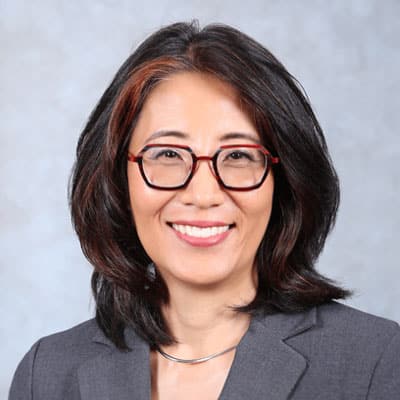BETHESDA, MD — The FDA is rolling out a new six-month pilot program to provide more transparency to generic drug applicants on complicated regulatory issues, Office of Generic Drugs Director Iilun Murphy told an industry conference on Monday.
The pilot, set to roll out sometime in the next month, is in response to feedback from industry and will “provide more clarity to applicants, where possible, about the nature of the issues delaying action” on generic drug applications, Murphy said at the Association for Accessible Medicines’ GRx+Biosims conference.
 Iilun Murphy
Iilun Murphy“We will be evaluating whether this increased transparency is helpful to industry,” Murphy said. The agency’s hope is that the pilot program can improve the quality of applications and increase earlier approvals.
As novel issues arise and FDA seeks resolutions, she said, the agency will provide more timely guidance “if our thinking on the issue would be useful for industry,” Murphy added. “But in the meantime, we have to keep moving forward with applications on an individual basis, so there can be a delay between when we make the action on an individual application” and sharing wider guidance on FDA’s current thinking.
Murphy stressed the need for better data quality and integrity in generic drug submissions, noting that about 40% of generics win approval in their second cycle through the agency’s submission process, or after one complete response letter.
A slide from the conference showing the cause of recent generic drug application rejections. (Zachary Brennan for Endpoints News)
Click on the image to see the full-sized version
“We want to reduce the number of assessment cycles required to obtain ANDA [abbreviated new drug application] approval,” Murphy said.
Last year saw the generics office conduct its highest number of meetings with sponsors related to product development and post-CRL clarifications, she added.
The latest iteration of the generic drug user fee deal, known as GDUFA III, established several new meeting types between industry and FDA, including one related to product-specific guidance based on input from industry. But “curiously, we’ve had little to no uptake on those opportunities,” Murphy said.
Leaders from the FDA’s Center for Drug Evaluation and Research recently traveled to India to meet with the companies conducting the vast majority of bioequivalence and bioavailability studies for generic drugs marketed in the US. Murphy said 77% of ANDAs submitted under GDUFA II from 2017 to 2022 had bioequivalence studies conducted in India.
